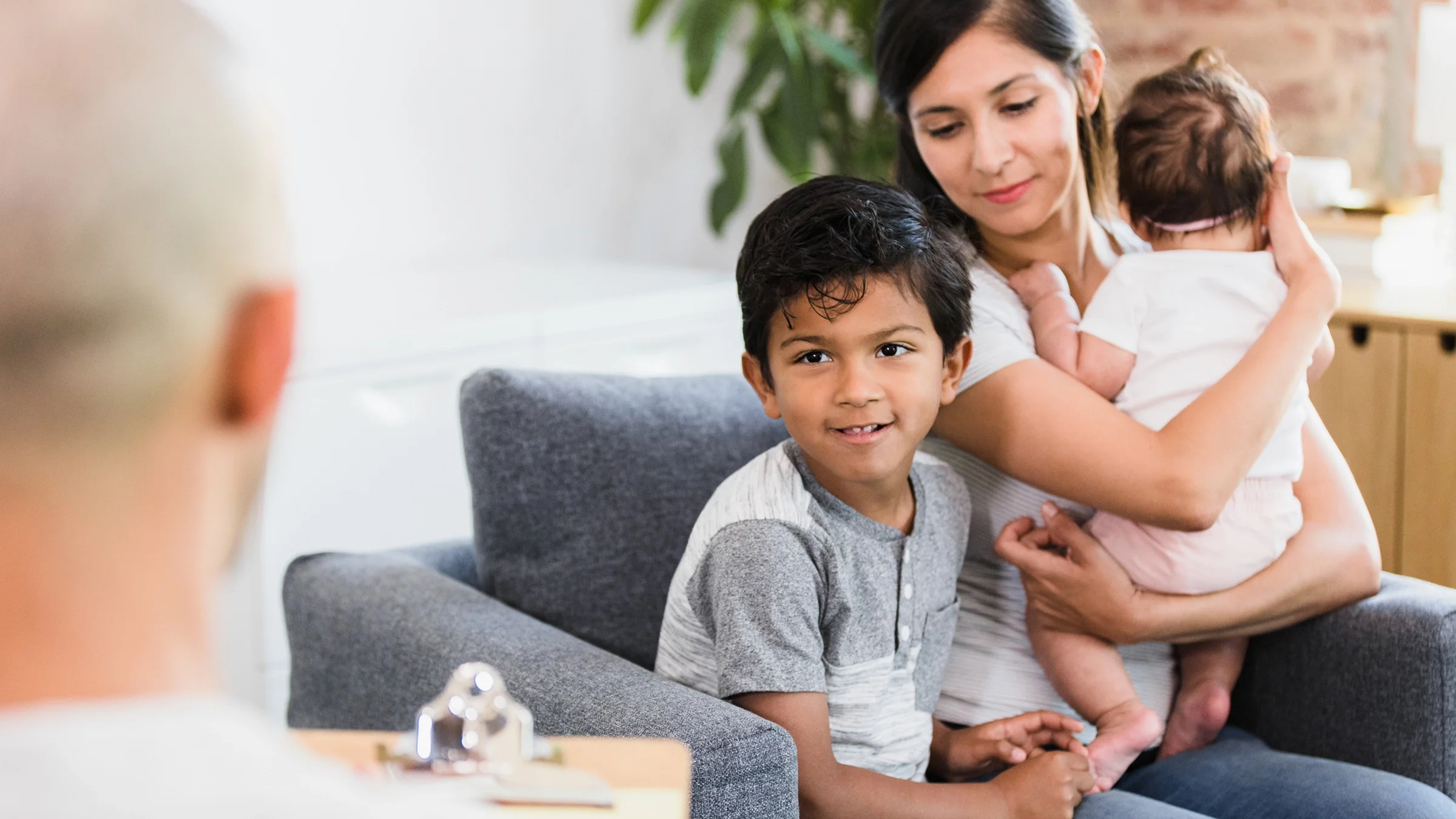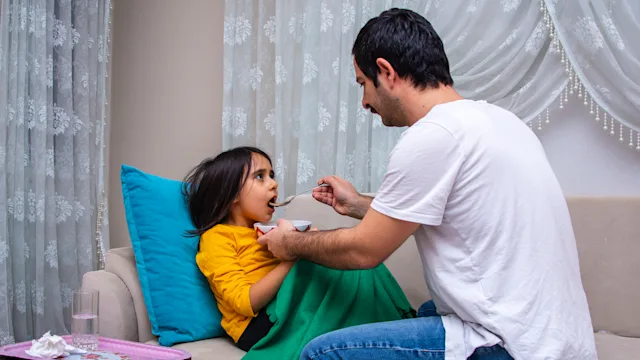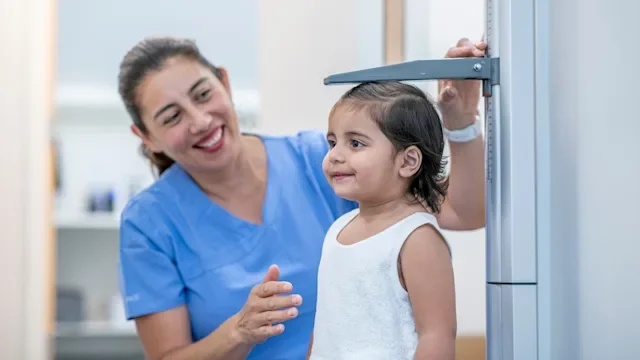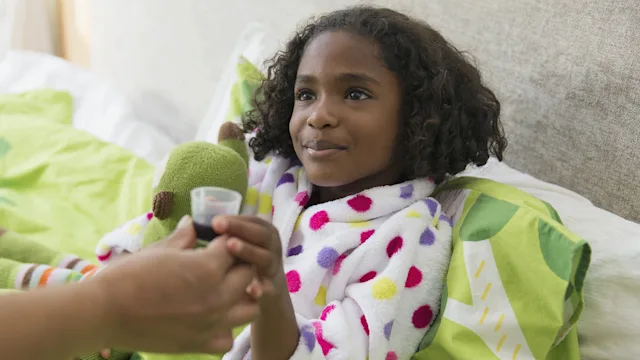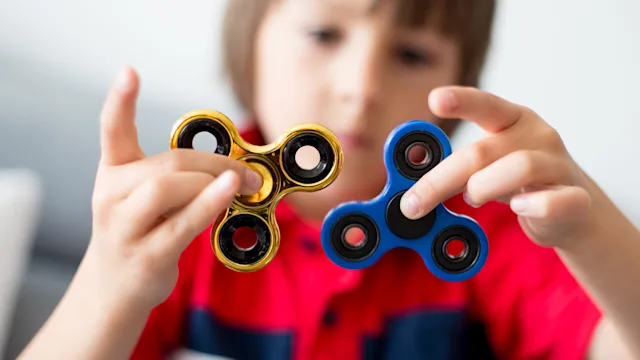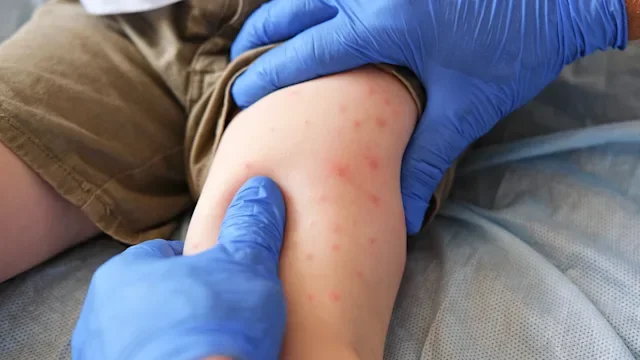Key takeaways:
Child-parent psychotherapy (CPP) is a type of mental health treatment for kids ages 0 to 5 years old and their caregivers.
This kind of therapy usually lasts for 1 year, with both the primary caregiver and the child attending weekly sessions together.
The central goal of CPP is to strengthen and support the relationship between children and their caregivers, in order to promote healing and good mental health for all parties.
Our childhood, past relationships, and traumas often impact how we view ourselves and the world. This, in turn, affects how we connect with our children as adults.
Very young children depend on their caregivers for survival. So challenges in that critical relationship can seriously interfere with their long-term mental health.
If you are struggling to bond with your child because of something in your past, or you’re questioning how to parent your child with mental health concerns, it’s not your fault. These are normal reactions to difficult situations. But child-parent psychotherapy (CPP), a treatment approach designed to address these issues, could help.
Search and compare options
What is child-parent psychotherapy?
CPP is a type of therapy intended for children ages 0 to 5. It’s designed for kids who have experienced one or more traumatic events. It’s also helpful for kids who exhibit signs of early mental health or behavioral problems.
The types of traumatic experiences that CPP can help address include:
Neglect
Death of a caregiver
A serious accident
Physical or sexual abuse
Exposure to domestic violence
This therapy approach involves the participation of both the child and primary caregiver. They work together with a therapist to address challenges that impact their relationship, like trauma.
The CPP therapist will help the caregiver develop new, supportive ways of interacting with their child. The therapist will also help identify relationship patterns in the caregiver’s life that may impact their child’s development.
A CPP therapist is also trained to consider other factors that may play a role in the parent-child relationship, such as:
Culture
Finances
Family structure
Immigration or race-related stressors
Religion
Read more like this
Explore these related articles, suggested for readers like you.
What are the goals of child-parent psychotherapy?
A key goal of CPP is to strengthen the relationship between child and caregiver. In fact, it is often said that in CPP the “patient” is not the child or the caregiver, but the relationship between them.
By addressing the parent-child relationship, the child can view their caregiver as reliable, predictable, and warm. And this, in turn, supports good mental health and a positive sense of self.
To achieve this goal, CPP explores emotional and behavioral issues experienced by both the caregiver and the child. This includes how the caregiver and child perceive themselves and each other, and how their interactions promote or undermine the child’s mental health.
Additional goals of CPP are to:
Create a sense of physical and emotional safety
Support emotion regulation
Develop skills to build safe and satisfying relationships
Promote the child’s engagement in learning and interest in exploring the world
All of this is done in a developmentally appropriate way. For young children, this often means using play or toys.
What mental health conditions can child-parent therapy help with?
CPP can help children who experience early trauma, mental health symptoms, or behavioral issues. In particular, CPP has been shown to help kids with issues related to:
Caregivers who have major depression
Maltreatment
Witnessing domestic violence
Foster care placement
CPP may also promote secure attachment between children and their caregivers. Secure attachment means that a child seeks comfort from their caregiver when they’re distressed. And they can also tolerate separation, trusting that the connection will eventually be reestablished and resuming contact with the parent when they return.
In addition to helping children feel secure in their relationships with their caregivers, CPP can also help address caregivers’ concerns. Research suggests CPP can help relieve parenting stress and symptoms of traumatic stress.
How does child-parent psychotherapy treatment work?
CPP can take place at a therapist’s office, a clinic, a community organization, or in a family’s home. It typically occurs once a week over three stages that last for about a year.
Stage 1
In the first stage, the therapist meets with you to understand the challenges you’re facing. The therapist will also explore your:
Strengths
Values
History
Cultural beliefs
Experiences
Stage 2
First, if your child is old enough, the therapist will help explain to them what you will be doing together in your meetings. This is often done with toys and using play.
Throughout the second stage, the therapist will help you and your child understand how your experiences affect your relationship. For example, the therapist may help you see how your past impacts your feelings about your child and gets in the way of your relationship, if that’s the case.
You and your child will also practice new ways of interacting with each other. This may happen through play, conversation, or responding to each other with gestures. As the process continues, the therapist may help you develop a family story. The story will honor your difficulties, incorporate your strengths, and promote healing.
CPP therapists have advanced training in child development. So they can help you understand what to expect during your child’s current developmental stage, as well as help you prepare for future stages.
Stage 3
In the final stage, you, your child, and the therapist review the work you’ve done together. And you celebrate the progress you and your child made in therapy.
Your therapist will give you information about further resources and services as needed. They will also create space to explore the difficulties of ending treatment and saying goodbye.
How do I find a therapist for child-parent psychotherapy?
To find a therapist, look for a provider who has specific training in CPP. All CPP therapists have to have a master’s or doctoral degree. They should also have completed training in CPP specifically.
A directory of CPP-trained therapists across the country can be found through the Child-Parent Psychotherapy website.
The bottom line
Infants and young children depend on their caregivers to feel safe, secure and cared for. These early relationships set the stage for how children value themselves, what they expect from their future relationships, and their overall mental health.
Trauma and other life challenges can interfere with the child-caregiver relationship. They can also harm a child’s development. Child-parent psychotherapy (CPP) is an evidence-based treatment. It’s designed to support children and caregivers in developing healthy, supportive, and stable relationships that promote healing for the whole family.

Why trust our experts?



References
Allen, B., et al. (2019). Assessing and treating youth exposed to traumatic stress. American Psychiatric Association Publishing.
American Psychological Association. (n.d.). Secure attachment.
Child-Parent Psychotherapy. (2017). CPP brochure.
Cicchetti, D., et al. (2011).Normalizing the development of cortisol regulation in maltreated infants through preventive interventions. Development and Psychopathology.
Hagan, M. J., et al. (2017). Parent and child trauma symptoms during child-parent psychotherapy: A prospective cohort study of dyadic change. Journal of Traumatic Stress.
Lai, Y., et al. (2018). A critical exploration of child-parent attachment as a contextual construct. Behavioral Sciences.
Stronach, E. P., et al. (2013). Preventive interventions and sustained attachment security in maltreated children. Development and Psychopathology.
The California Evidence-Based Clearinghouse for Child Welfare. (2019). Child-parent psychotherapy (CPP).
Toth, S. L., et al. (2015). Mechanisms of change: Testing how preventative interventions impact psychological and physiological stress functioning in mothers in neglectful families. Development and Psychopathology.
UCSF Child Trauma Research Program. (n.d). Child-parent psychotherapy resources.

